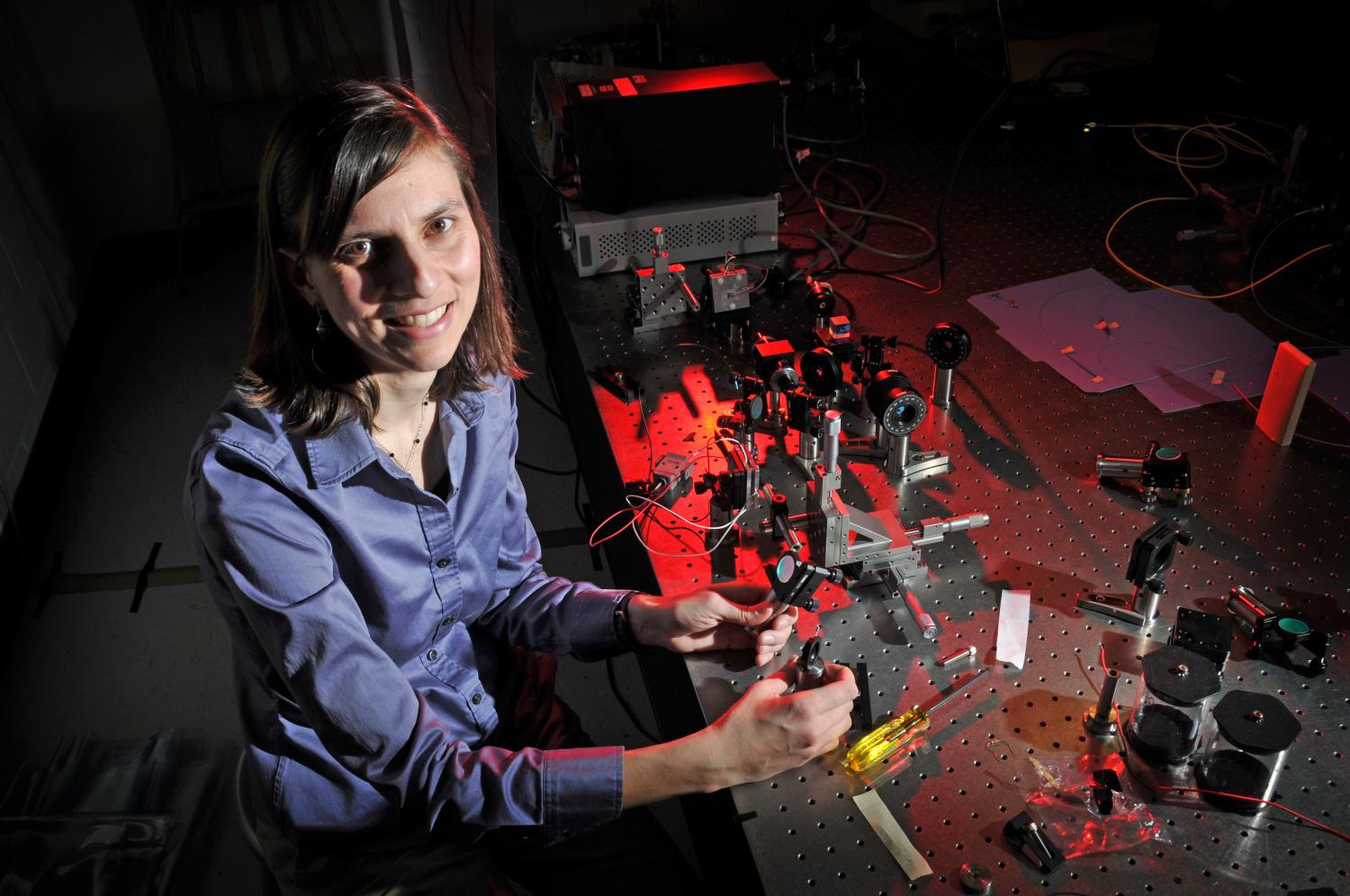Grant will enable deep-brain imaging

In order to understand diseases like Parkinson's, researchers need to look at individual neurons in the brain. However, with current techniques, nearly 75 percent of the brain is inaccessible.
ECEE Assistant Professor Juliet Gopinath and her research team want to change that. They've received a $1 million grant from the National Science Foundation to develop a fiber-optic imaging instrument that will complete deep-brain imaging using a miniature nonlinear microscope. Specifically, the instrument will provide the ability look deep in the brain at the function of neurons in the olfactory system.
"Optical imaging methods offer an unprecedented ability to study individual neurons in the brain," Gopinath said.
Gopinath is collaborating with Victor Bright from CU-Boulder's Department of Mechanical Engineering, as well as Emily Gibson and Diego Restrepo from CU-Denver. Restrepo is the director of the Center for Neuroscience.
The project builds on the team's established work in four disciplines: lasers and nonlinear optics for the excitation source; nonlinear microscopy for high resolution imaging; electrically tunable electrowetting lenses for scanning; and optogenetics for optically reading out action potentials, or electrical signals that are released when neurons fire.

